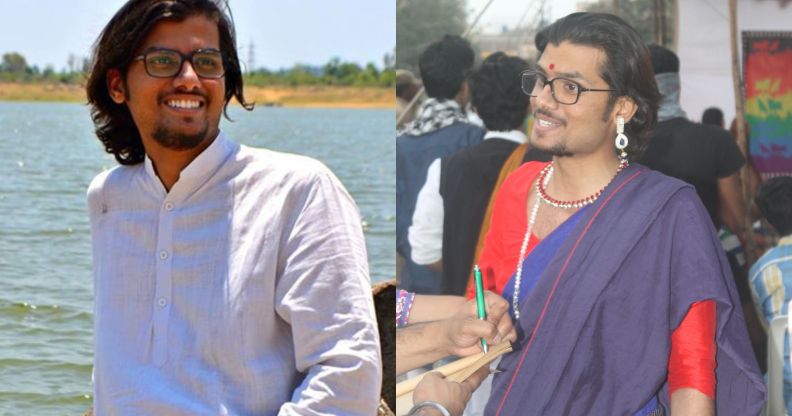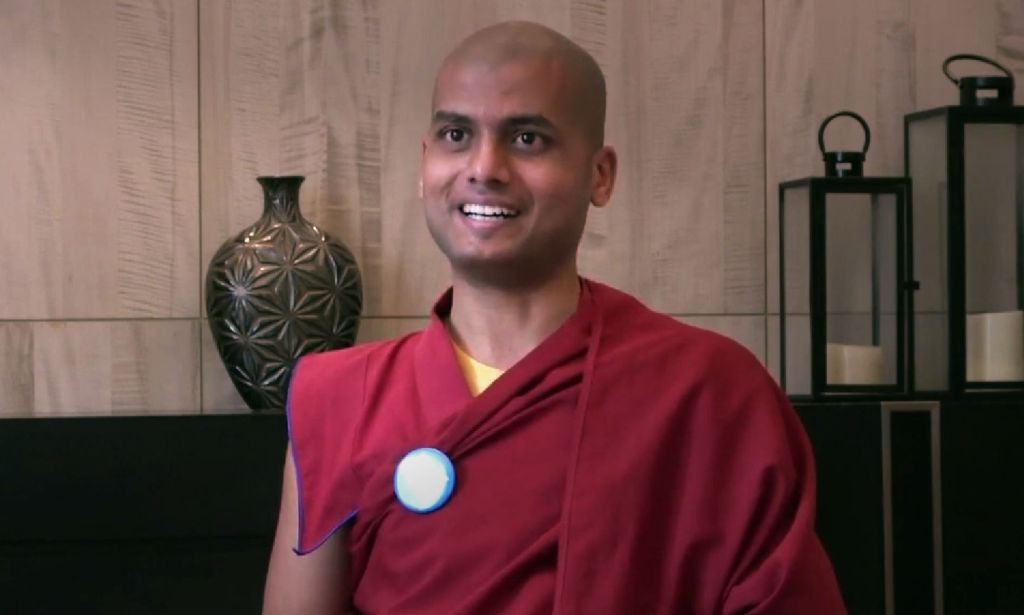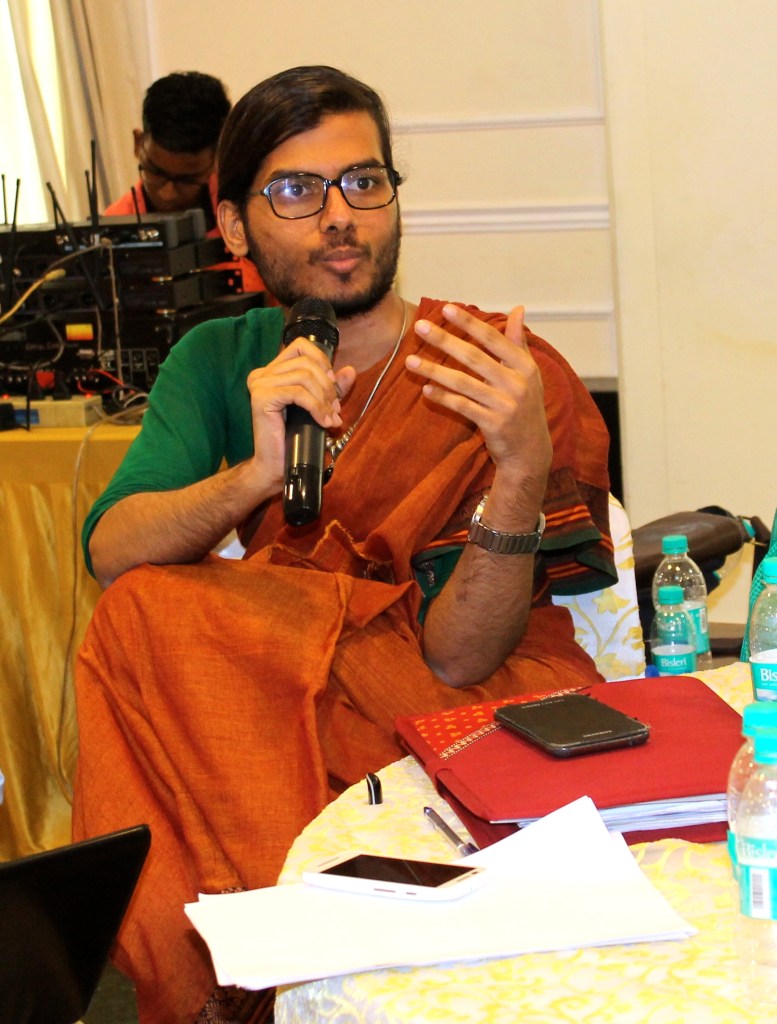Trans monk had conversion therapy forced on them for five years: ‘Home is supposed to be safe’

Tashi was brought to a spiritual healer after they told their parents they were trans non-binary. (Supplied)
When Tashi came out as trans non-binary, their parents took them to a spiritual leader and a psychologist in a desperate bid to make them change.
A Buddhist monastic from India, Tashi has since embraced who they are, but still feel the effects of the conversion therapy, which left them depressed and suicidal.
They’re sharing their story amid a major push to ban conversion therapy in India.
Tashi is one of five people fronting a campaign for rights groups ILGA Asia and All Out, urging people to sign a petition that will be delivered to the Indian government.
ILGA Asia and All Out are also calling for a conversion therapy ban in Bangladesh, Indonesia, and Sri Lanka, and will campaign in other countries later in the year.
Like so many queer people, Tashi was bullied as a child for the way they talked and behaved.
“I had loving, caring, kind parents and a loving sibling, but for them all of this is normal, to be bullied for the way I am is normal. It’s me who’s supposed to change,” Tashi tells PinkNews.
When Tashi went to university, they figured out that they were trans non-binary. In their early 20s, they returned to the family home and came out.
The parents were shocked and, desperate to change their child, arranged for Tashi to see a spiritual healer.

“I don’t know what conversation happened between them but once I got there, it was clear that it was mainly about my sexuality and my gender identity and that I needed to be cured,” Tashi says.
“The religious person asked me a few things and decided to do his own thing of putting his hands on my head, blessing me. I knew what was happening and it was pretty uncomfortable.
“I was not prepared and I wasn’t OK with it because I knew there was nothing wrong with me. It was intrusive and I wasn’t in agreement with it. I wasn’t seeking it out in any sense.”
When that failed, Tashi was taken to a clinical psychologist.
“More than my father believing what he believed in, it was more appalling to see what a person of science could believe in,” Tashi says.
The experience was a painful reminder for Tashi that the world thinks there’s “something wrong” with them.
“I’ve seen many of my friends who have gone through similar experiences, so it’s not uncommon, which makes it more scary. It’s so common that we accept it.”

Tashi considered suicide after conversion therapy ordeal
In total, Tashi spent about five years undergoing various conversion attempts.
“It lasted until I left home, after becoming a monastic, after I got ordained. Until then it was always a religious healer or a psychologist or so-called ‘family interventions’ – everyone telling you this is wrong, you’re not OK, you should change, shaming, blaming, emotional blackmail. All of that is part of so-called conversion, I think.”
Tashi continues: “I was depressed for quite a long time. There were thoughts of killing myself – there were attempts also.
“I don’t wish it on anyone. I don’t think anyone should go through it in any sense. Home is supposed to be safe but unfortunately, as we know, for queer trans people, natal family homes especially are not.”
Tashi eventually left home after they were ordained.
Of their family, they say: “They love me, I think, in their own twisted way … I’ve also experienced their love so that means I, in some ways, feel a [duty] to stay in touch with them.”
Ryan Ong, communications officer at ILGA Asia, tells PinkNews that conversion therapy survivors in Asian countries are often left with lasting emotional and psychological trauma.
“Some proponents claim that these practices are carried out with consent, but often, there are prevailing laws, discrimination, stigma and pressure from society in these contexts which cause LGBTQIQ people to internalise the idea that they are wrong, sick or sinners, and seek out conversion therapy under extreme pressures,” Ong says.
“Our campaign is designed to heighten awareness of the injurious nature of conversion therapy and to generate advocacy for the safeguarding of LGBTIQ individuals against these harmful practices, which do not have a scientific basis.
“We implore governments and communities across Asia to take action to protect the human rights and dignity of all individuals and to take decisive and concrete steps to put an end to conversion therapy permanently.”
Henry Koh, an executive director of ILGA Asia, says conversion therapy “violates the inherent dignity and human rights of LGBTIQ individuals”.
He adds: “We understand that there may be cultural, religious, or other contextual factors that contribute to resistance to our campaign, but we urge all parties to approach this issue with sensitivity and empathy for the experiences of LGBTIQ individuals who have suffered severe emotional and psychological harm as a result of these practices.”
Suicide is preventable. Readers who are affected by the issues raised in this story are encouraged to contact Samaritans on 116 123 (www.samaritans.org), or Mind on 0300 123 3393 (www.mind.org.uk). Readers in the US are encouraged to contact theNational Suicide Prevention Line on 1-800-273-8255.

